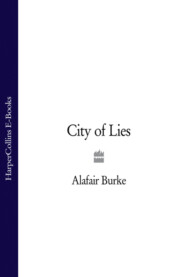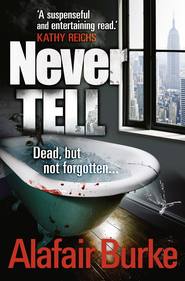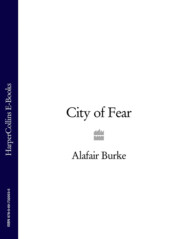По всем вопросам обращайтесь на: info@litportal.ru
(©) 2003-2024.
✖
Long Gone
Автор
Год написания книги
2018
Настройки чтения
Размер шрифта
Высота строк
Поля
“Tomorrow at eleven.”
“A.m.?”
“Of course. I really would deserve to lose my membership card if I fell for a business appointment near midnight.”
“And that’s it? He wants you to see the gallery space?”
“And to bring a résumé so he can do the requisite due diligence. All official-like.”
Still, Lily said nothing.
“Go ahead and say it.”
“What? I didn’t say a word.”
“You don’t have to. I’ve got to admit, I’m thinking it myself. It’s too good to be true. We’ve been running through all of the many reasons to blow this guy off for the last four days. Remember?”
“I remember.”
“But?”
“But nothing. It’s totally up to you.”
“There has to be a catch, right?”
“Seemed so when the asshole wasn’t calling. Now the asshole’s calling with the perfect job.”
“Jesus, you are such a contrarian.”
“Am not,” she said, sticking out her tongue.
“So, all right. I’ll meet the man tomorrow. With my Sisters in Cynicism membership fully updated. Bullshit meter on high alert.”
“And Mace,” Lily added. “A little Mace never hurt anyone.”
As she did more often than she would have liked, Alice allowed Lily to leave enough cash on the table to cover both of their meals. In the pattern that had developed, Alice would soon return the favor, but at a less expensive establishment.
“Oh, and Alice?” Lily’s tone softened as she placed a reassuring hand on Alice’s forearm. “I really do hope this is the real thing.”
CHAPTER FOUR
Hank Beckman watched the digital numbers change on the pump, careful to add only five bucks to the tank. He felt his stomach growl, and then stole a glance at his watch. Three in the afternoon, and nothing today but two cups of coffee.
He’d already paid for the gas—cash, just in case—but dashed back into the station to grab something to tide him over.
“Forget something?”
Just his luck. He stops for gas—at the high-traffic mega station outside the Lincoln Tunnel, no less—and happens upon the one and only gas station attendant in the country who could place a customer’s face. Gold star for attentiveness. He raised a hand, both in a wave and to conceal his appearance. Damn, he was overdoing it with the paranoia. “A man’s got to eat.”
He turned away from the register to peruse the aisles. The usual convenience-store crap. Candy. Chips. Those weird, soggy sandwiches stored in triangular plastic containers. Fried pork rinds? He grabbed two granola bars and then a bottle of orange juice from the refrigerator case. Laid a five on the counter, then slipped the change into the plastic donation bucket, this one bearing a picture of sad-looking shelter animals.
He heard a bell chime against the glass door as it swung shut behind him. Tucking the OJ in the crook of his elbow, he ripped open one of the bars and ate it in three bites before getting settled behind the wheel of the Crown Vic. As he inserted the key into the ignition, he thought about turning around, driving back through the tunnel, and making his way downtown early.
He’d gone nearly two months without checking in on him. Two months since he’d been warned. Officially disciplined, as it had been put to Hank. But not one day had passed in those two months when Hank hadn’t thought about the guy. Wondered what he was doing. Imagined how pleased the guy must have been without Hank around to monitor him.
But it was precisely because Hank had been on good behavior that he was willing to risk this brief check-in. Back before he’d been hauled out to the proverbial woodshed, he’d been watching the subject at night. His intentions had been noble—personal time for personal work—but the guy had noticed the pattern. On the upside, if the guy were still checking his back for Hank, he wouldn’t be suspicious in the middle of the afternoon. No, this was the perfect time. Hank’s field stops had gone faster than planned. He could easily steal ninety minutes out on his own without anyone asking questions. He’d already bought his one-point-six gallons of gas for the round-trip drive to Newark, just in case Tommy wondered about the fuel level when Hank returned the fleet car.
As Hank removed the ring of translucent plastic from the cap of his orange juice, he thought about Ellen. Poor Ellen. He hadn’t realized it when he’d had a chance to make a difference, but his sister had been an addict. No different from the sad sacks he’d encountered (and judged) for years—junkies who told themselves they’d get off the needle next week, career offenders who said they’d retire after one last big score—Ellen had let something other than herself become a necessary part of her identity. In her case, that something was alcohol.
He remembered his sister commenting—usually with pride, but often in a resentful, teasing way if she’d had a glass of chardonnay or two—about his extraordinary discipline. “My little brother is the abstemious one in the family.” “Hank will live to be a hundred, the way he takes care of himself.” “My perfect baby brother.”
He had missed the signs of addiction in his sister, but wondered whether, if Ellen were alive, she would spot them in him. Like a drunk on the wagon never stops craving the bottle, he had managed to restrain himself in the two months that had passed since the reprimand, but he had never stopped thinking about the man who killed his sister. And like an alcoholic assuring himself that this drink will be the last—even as he knows in his heart that he has no intention of ever letting it go—Hank started the engine, telling himself he would cruise down to the apartment in Newark, just this once, just to make sure the man hadn’t gone anywhere without him.
CHAPTER FIVE
There was a time when the name of Manhattan’s Meatpacking District required no further explanation. It was the district where the meat was packed. Not only was the name self-evident, so was the neighborhood itself. Refrigerated trucks backed up to open warehouse doors, ready to transport the hanging carcasses that would become the city’s finest steaks. Butchers—the real ones, with thick smears of pink wiped across their aprons—promised the early morning’s finest cuts. The cobblestone streets, left untended since the notorious days of the Five Points slum, were fit only for industrial vehicles and the most seasoned pedestrians, who knew from years of experience precisely where to step to avoid a tumble. Even the air was tinged with the bloody odor of raw meat.
Now the neighborhood’s name was simply a tip of the hat to history. On Alice’s route from stepping off the 14D bus to the address Drew Campbell had given her, she passed an Apple store, the Hotel Gansevoort (site of the most recent bust of a celebrity offspring for drug dealing), and the Christian Louboutin boutique. She did notice as she made her way south that the luxuriousness of the surroundings became relative. As the $700, seven-inch heels at Louboutin faded from view, she passed a modest little wine bar, then a D’Agostino grocery, even a rather ordinary-looking brick apartment complex.
Despite nearly a lifetime in the city, she always got confused in this neighborhood. She’d spent her childhood in the Upper East Side. Stayed at her parents’ townhouse on trips home from Philly in college. Lived with Bill for two years on the Upper West before the wedding and subsequent move to St. Louis. Briefly back to the folks’ place postdivorce before she’d taken an Upper East Side studio of her own during the MFA program.
Even though she lived downtown now, she was still in the numbered grid, where streets ran east to west, avenues ran north to south, and the numbers on the grid always showed the way. This morning she was turned around in the tangle of diagonals known as Jane, Washington, Hudson, and Horatio, all labeled streets, yet intersecting with one another in knots.
She pulled out her iPhone and opened up Google Maps. After a right turn past the D’Agostino, she found herself on Bethune and Washington. She recognized the intersection, just one block from the dive Mexican joint that served pitchers of fume-exuding margaritas at sidewalk picnic tables.
Her inner naysayer—that voice in her head that kept warning her that Drew’s offer was indeed too good to be true—tugged at her peripheral vision, forcing her to notice that she’d left the swank of the Meatpacking District and was heading away from the better parts of the West Village. A Chinese restaurant called Baby Buddha was boarded shut on the corner, the words “CLOSED Thanks you for your bussiness” spray-painted across the wood.
Past the boarded-up storefront, across the street, stood a prewar tenement with iron gates securing the lowest three floors of apartment windows. She suspected that if she walked a few more blocks, she’d eventually run into a joint needle-exchange, condom-distribution, check-cashing tattoo parlor. She summoned an image of herself, like Lucy in the Peanuts comic strips, sitting beneath a whittled wood sign bearing the words “Modern Art, 5 Cents.”
But as she passed a closet-sized retail space featuring highbrow clothing for spoiled dogs, her outlook began to brighten. She spotted a For Lease sign in the next front window. She took in the remainder of the block. An independent handbag designer. A UK-based seller of luxury sweatshirts, which people now collectively referred to as “hoodies” to justify the prices. A flower shop. High-end shoe store. A ten-table restaurant run by a former finalist on Top Chef. Not a check-cashing tattoo parlor in sight. She crossed her fingers inside her coat pockets as she squinted at the approaching numerals waiting for her above the unoccupied space.
Jackpot. This was the spot. The address Drew had given her. She pressed her forehead against the front glass, cupping her hands at her temples as she peered into the empty space. The ceilings were at least fifteen feet high. Exposed heating ducts, but in a cool way. Smooth white walls, just waiting for art to be hung. She could picture herself there, wearing one of her better black dresses, gesturing toward oversize canvases that would provide the space’s only color.
She jerked backward as a tap on her shoulder startled her from her daydream. She heard a faint beep-beep as Drew Campbell pressed the clicker in his hand, activating the locks of the silver sedan he’d parked curbside.
“So this is it, huh?”
“You sound disappointed,” he said.
For some reason, people thought Alice was down even at her most enthusiastic. She had a theory that this was somehow attributable to a childhood spent with false hopes. She had been raised by parents who told her at every opportunity that she was better, she eventually realized, than she actually was. They’d had the best intentions, but their unconditional, unrealistic praise had in fact groomed her for disappointment. Having to serve as her own reality check had made Alice her own harshest critic.
Even now, she was incapable of feeling pride or excitement without immediately focusing on all the reasons she would eventually fail. She flashed back briefly to those comments she’d received periodically during her annual evaluations at the Met. Saw those signals she should have picked up on. Tried to push them into her past as Drew Campbell looked at her with impressed, expectant eyes, ready to give her a fresh start.
Drew tapped six digits into the keypad of the lockbox on the front door, and then caught the key that fell from the box. “I haven’t signed the papers yet,” he said. “Figured the gal who’s going to run the place should have final approval.”
As she watched him slip the key into the lock and push the door open, she tried not to draw the metaphorical link to a new chapter opening in her life. She tried not to get her hopes up. She told herself it still might not happen. But already she could picture herself with that same key in her hand, pushing open that very door, making a name for this still-unnamed gallery in the limitless world of art.
“What do you think?”








